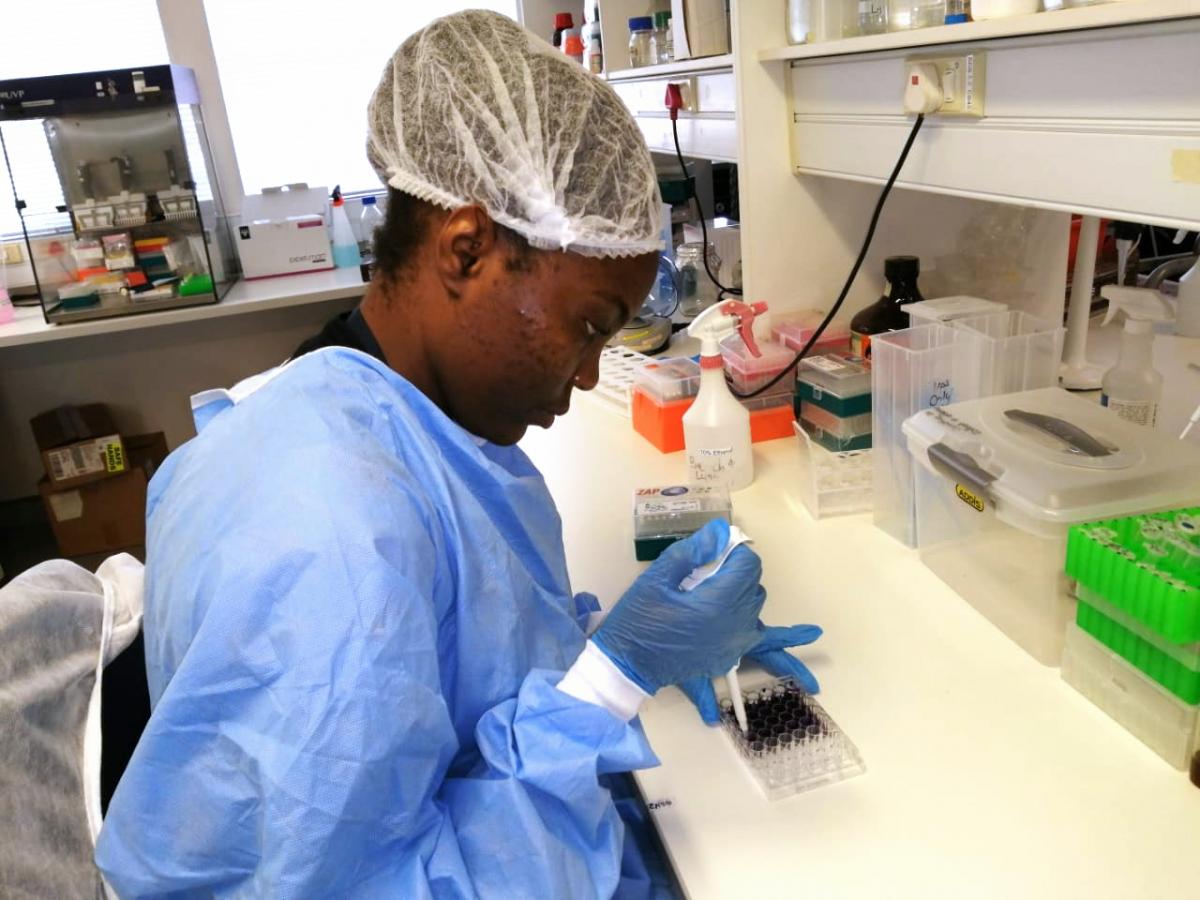Meet the Fellows: Regina Abotsi
May 08, 2020
A PhD Fellow from Ghana is looking for an antibiotic treatment for lung disease in children infected with HIV.
 Regina Abotsi is currently completing a full-time OWSD PhD fellowship at the University of Cape Town in South Africa, where she is researching a potential antibiotic treatment for children with HIV-related lung disease. Regina was also featured in our December newsletter, when she received the L'Oréal-UNESCO 2019 Young Talent Award for Sub-Saharan Africa!
Regina Abotsi is currently completing a full-time OWSD PhD fellowship at the University of Cape Town in South Africa, where she is researching a potential antibiotic treatment for children with HIV-related lung disease. Regina was also featured in our December newsletter, when she received the L'Oréal-UNESCO 2019 Young Talent Award for Sub-Saharan Africa!
How did you learn about the OWSD fellowship, and what difference has it made to your career?
A friend told me about the OWSD fellowship as she was aware that I was looking for funding for my PhD studies. The OWSD fellowship was a turning point in my career. It has provided me with comprehensive financial assistance, which has allowed me to focus on my research. When I faced challenges during the initial phases of my research, OWSD stepped in and provided the appropriate support. Through the fellowship's travel grants for conference attendance, I have been able to attend a much-needed training workshop at the European Bioinformatic Institute at Cambridge in the United Kingdom. It is this shared purpose of excellence that motivated me to apply for, and subsequently be awarded, the 2019 L’Oréal-UNESCO For Women in Science Sub-Saharan Africa Young Talent Award.
What are you researching? What first made you interested in this subject?
I am investigating antibiotic resistance in HIV-infected children with chronic lung disease (CLD). CLD is responsible for about 50% of all illness and death in HIV-infected children. Recently, in sub-Saharan Africa, our research has shown that a novel type of CLD known as obliterative bronchiolitis is present in about a third of all HIV-infected children. As no treatment guidelines currently exist to manage the condition, we proposed to test the effectiveness of an antibiotic called azithromycin in this patient population, via a clinical trial in Malawi and Zimbabwe. The use of antibiotics has been associated with the emergence of antibiotic resistance in pathogens, which is a global public health concern due to the rise in infections caused by drug-resistant bacteria. One of the aims of my research is to find out if the azithromycin we are administering selects for antibiotic resistance in our study participants and how to overcome it. The findings from my research will influence the recommendation of azithromycin as a treatment for CLD in HIV-infected children.
 I have had a long-held fascination for pharmaceutical drugs in general, which led me to pursue the field of Pharmacy at both my undergraduate and postgraduate levels, where my interest in antibiotics in particular was further piqued. I have a keen interest in understanding how microorganisms develop resistance to antibiotics. My ultimate goal, as a researcher, is to contribute to solving the global problem of antibiotic resistance, and my current research is oriented towards this goal.
I have had a long-held fascination for pharmaceutical drugs in general, which led me to pursue the field of Pharmacy at both my undergraduate and postgraduate levels, where my interest in antibiotics in particular was further piqued. I have a keen interest in understanding how microorganisms develop resistance to antibiotics. My ultimate goal, as a researcher, is to contribute to solving the global problem of antibiotic resistance, and my current research is oriented towards this goal.
Has anything surprised you about your research experience?
One of the surprising things in my research experience is the finding that long-term use of azithromycin reduces the chances of death and hospitalizations in children and adolescents with HIV-associated chronic lung disease.
What are your plans for the future? What will you do after you complete your PhD?
After completing my PhD, I hope to undertake a postdoctoral fellowship to further equip myself with the latest skills and technologies in antibiotic resistance research. I would also like to assume an academic position in a research institute where I can run my own lab to conduct research on this subject.
THANK YOU, REGINA!











































